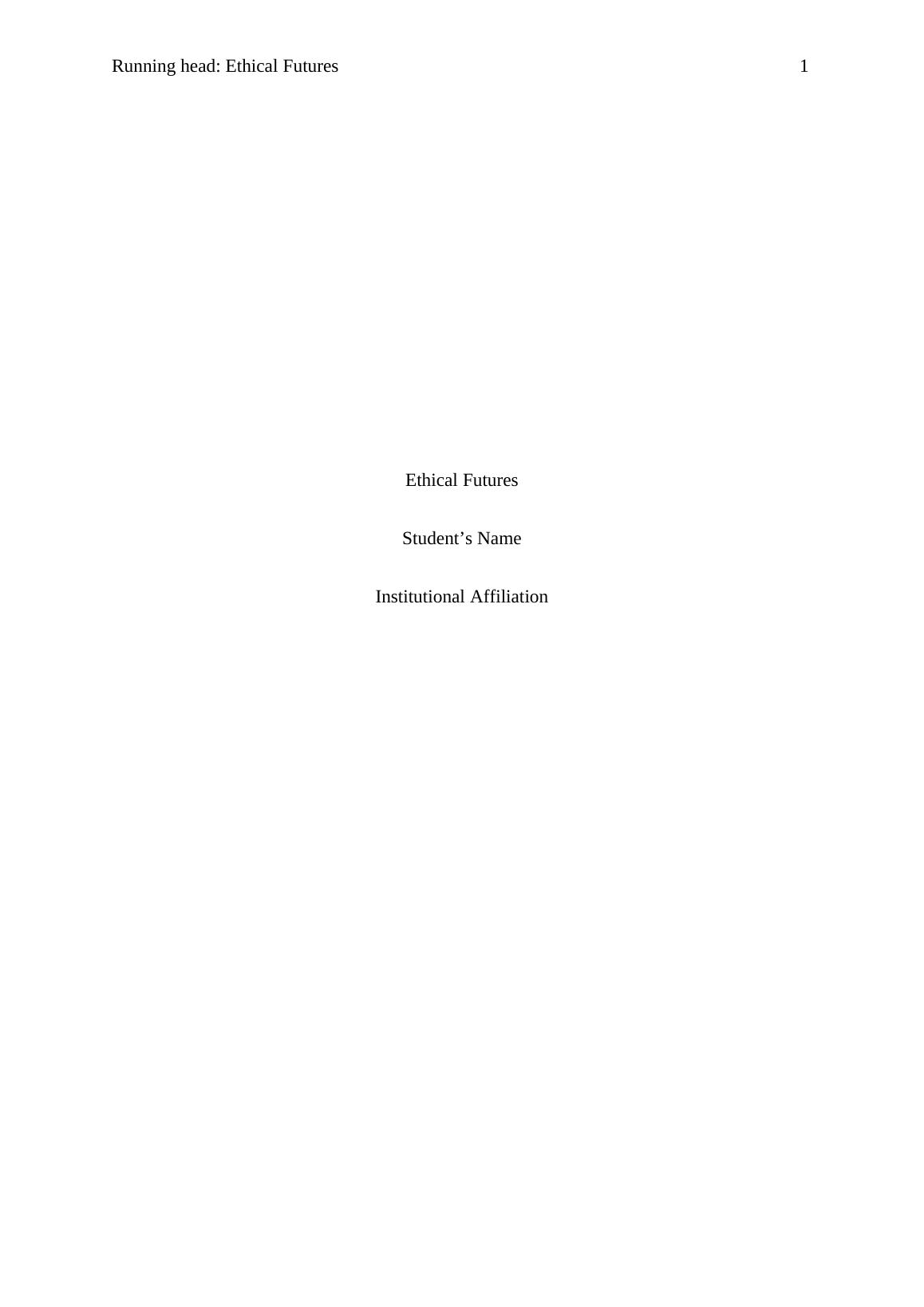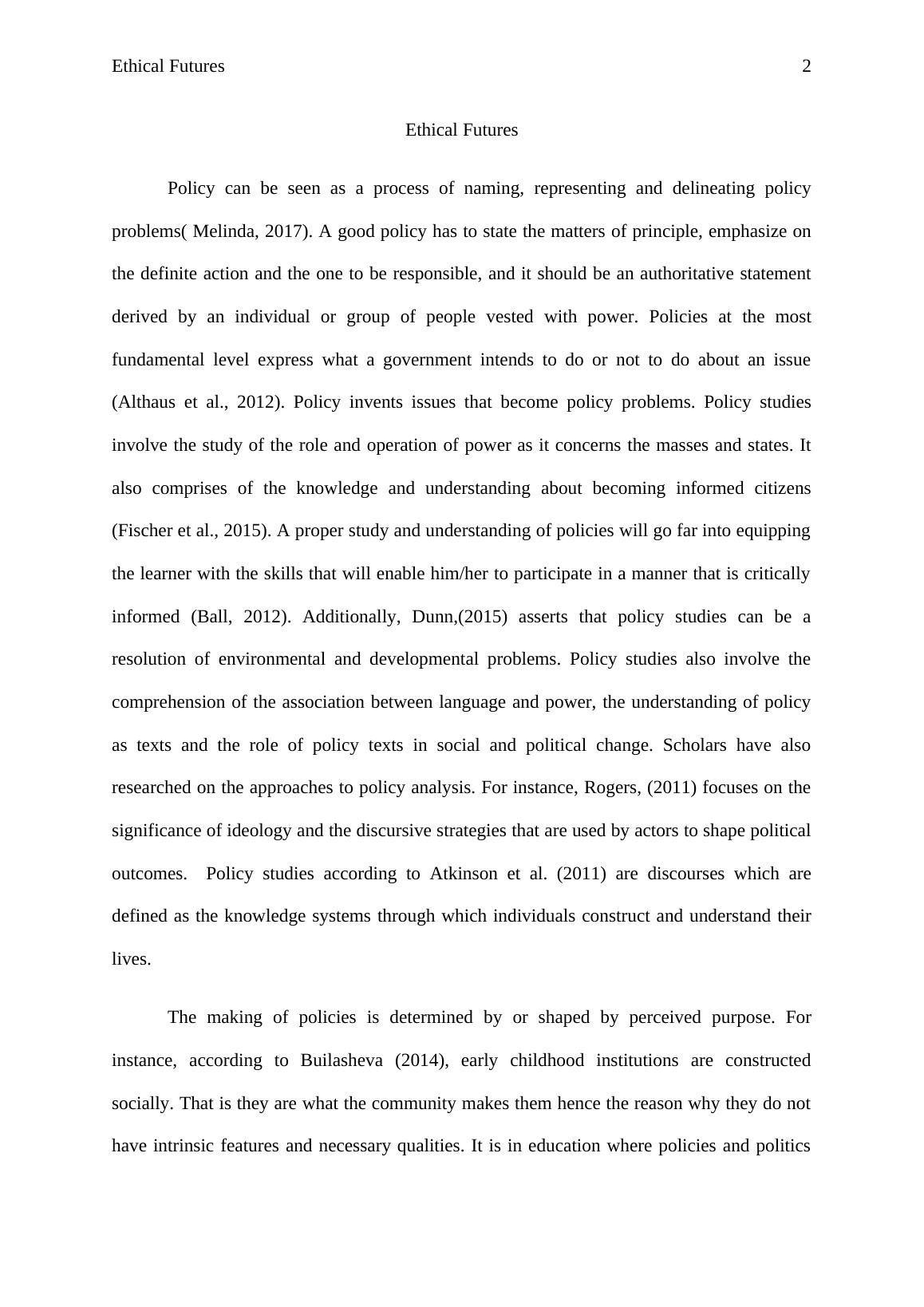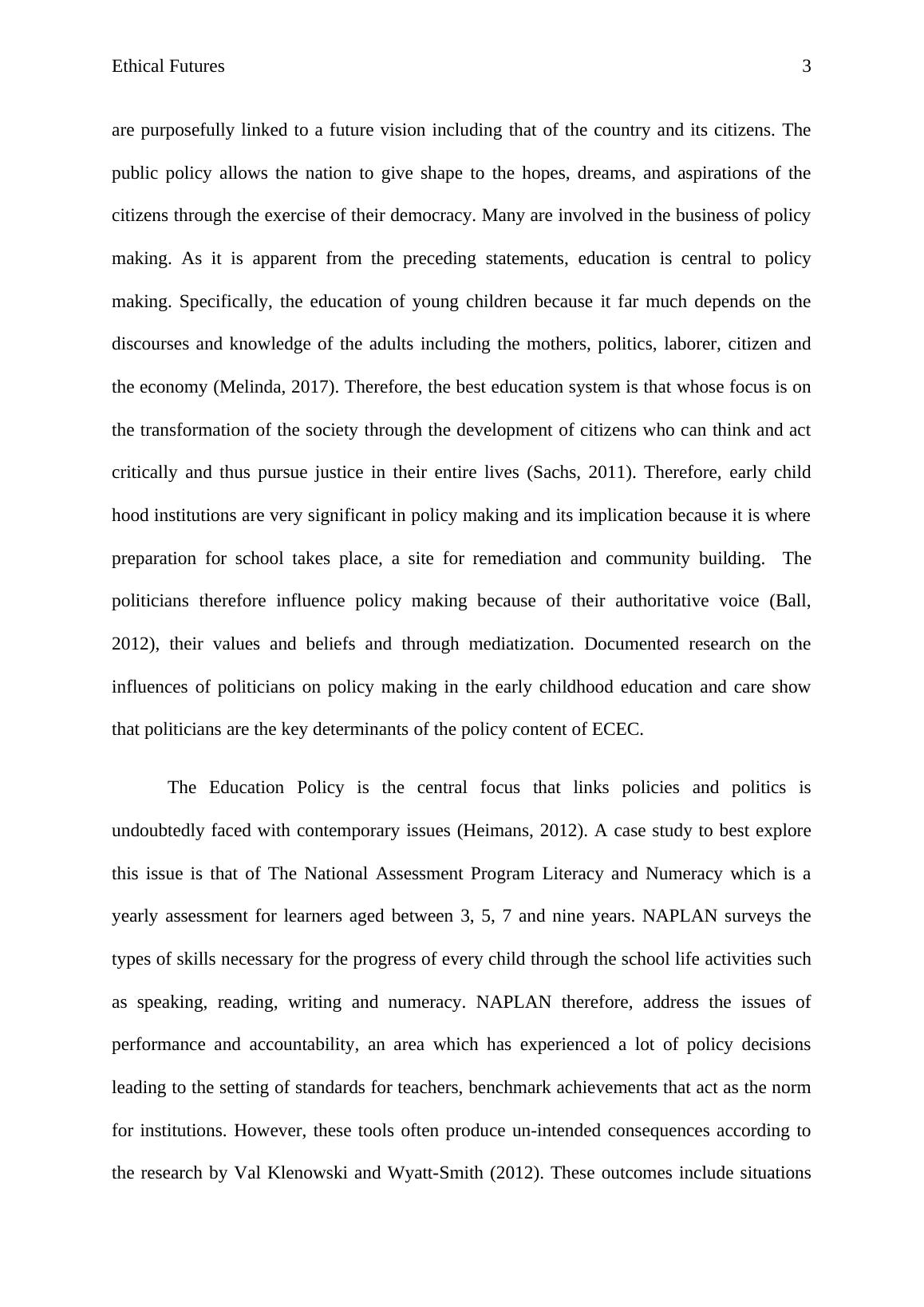Ask a question from expert
Ethical Futures Policy Report
6 Pages1229 Words186 Views
Added on 2019-11-19
Ethical Futures Policy Report
Added on 2019-11-19
BookmarkShareRelated Documents
Running head: Ethical Futures 1Ethical FuturesStudent’s NameInstitutional Affiliation

Ethical Futures 2Ethical FuturesPolicy can be seen as a process of naming, representing and delineating policyproblems( Melinda, 2017). A good policy has to state the matters of principle, emphasize onthe definite action and the one to be responsible, and it should be an authoritative statementderived by an individual or group of people vested with power. Policies at the mostfundamental level express what a government intends to do or not to do about an issue(Althaus et al., 2012). Policy invents issues that become policy problems. Policy studiesinvolve the study of the role and operation of power as it concerns the masses and states. Italso comprises of the knowledge and understanding about becoming informed citizens(Fischer et al., 2015). A proper study and understanding of policies will go far into equippingthe learner with the skills that will enable him/her to participate in a manner that is criticallyinformed (Ball, 2012). Additionally, Dunn,(2015) asserts that policy studies can be aresolution of environmental and developmental problems. Policy studies also involve thecomprehension of the association between language and power, the understanding of policyas texts and the role of policy texts in social and political change. Scholars have alsoresearched on the approaches to policy analysis. For instance, Rogers, (2011) focuses on thesignificance of ideology and the discursive strategies that are used by actors to shape politicaloutcomes. Policy studies according to Atkinson et al. (2011) are discourses which aredefined as the knowledge systems through which individuals construct and understand theirlives.The making of policies is determined by or shaped by perceived purpose. Forinstance, according to Builasheva (2014), early childhood institutions are constructedsocially. That is they are what the community makes them hence the reason why they do nothave intrinsic features and necessary qualities. It is in education where policies and politics

Ethical Futures 3are purposefully linked to a future vision including that of the country and its citizens. Thepublic policy allows the nation to give shape to the hopes, dreams, and aspirations of thecitizens through the exercise of their democracy. Many are involved in the business of policymaking. As it is apparent from the preceding statements, education is central to policymaking. Specifically, the education of young children because it far much depends on thediscourses and knowledge of the adults including the mothers, politics, laborer, citizen andthe economy (Melinda, 2017). Therefore, the best education system is that whose focus is onthe transformation of the society through the development of citizens who can think and actcritically and thus pursue justice in their entire lives (Sachs, 2011). Therefore, early childhood institutions are very significant in policy making and its implication because it is wherepreparation for school takes place, a site for remediation and community building. Thepoliticians therefore influence policy making because of their authoritative voice (Ball,2012), their values and beliefs and through mediatization. Documented research on theinfluences of politicians on policy making in the early childhood education and care showthat politicians are the key determinants of the policy content of ECEC.The Education Policy is the central focus that links policies and politics isundoubtedly faced with contemporary issues (Heimans, 2012). A case study to best explorethis issue is that of The National Assessment Program Literacy and Numeracy which is ayearly assessment for learners aged between 3, 5, 7 and nine years. NAPLAN surveys thetypes of skills necessary for the progress of every child through the school life activities suchas speaking, reading, writing and numeracy. NAPLAN therefore, address the issues ofperformance and accountability, an area which has experienced a lot of policy decisionsleading to the setting of standards for teachers, benchmark achievements that act as the normfor institutions. However, these tools often produce un-intended consequences according tothe research by Val Klenowski and Wyatt-Smith (2012). These outcomes include situations

End of preview
Want to access all the pages? Upload your documents or become a member.
Related Documents
The Impact of Different Policies on Primary Schoollg...
|6
|1251
|391
Advocacy, Social Justice and Professional Ethicslg...
|11
|3351
|200
Social determinants of health | Assignmentlg...
|14
|3781
|21
Report on Impact of Overseas Nurses and Potential Barriers in NHSlg...
|5
|825
|47
Basic Field Research Methodslg...
|6
|1092
|184
Journal of International Managementlg...
|11
|2169
|22